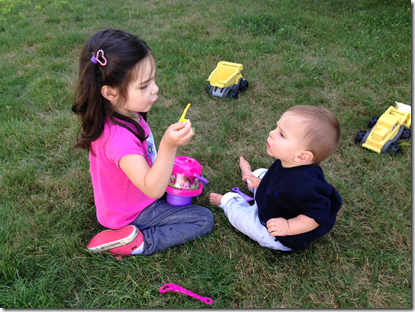Presidential Job Application Question #3 (with my answers): What’s your greatest political triumph?
/Slate's John Dickerson recently published a piece entitled:
Over the course of the next seven days, I plan on completing Dickerson's application by answering each of the questions. I've always wanted to be President, so perhaps my answers will be so impressive that a grassroots campaign supporting my candidacy will ignite.
Answers to previous questions:
- Question #1: What’s the biggest crisis you’ve faced in your professional life and how did you handle it?
- Question #2: What's the biggest personal crisis you’ve faced and how did you handle it?
Question #3: What’s your greatest political triumph?
In the spring of my freshman year of college, my friend, Chris Johnson, sat down next to me in biology class and told me that I should run for President of the Student Senate. He was running for Vice President and wanted a running mate.
We were attending Manchester Community College at the time. I was managing a McDonald’s restaurant - working 50 hours a week - while taking a full course load. I had no extra time to devote to anything else in my life.
I also only had about half a dozen friends on campus and knew nothing about campus politics.
And the election was a week away.
Still, I said yes.
In a debate against my Presidential opponents, I was asked how I expected to find to find the time to be President with my enormous school and work load. I said that I had asked my father the same question when deciding if I should run, and he had said, “Great men don’t find the time. Great men make the time.”
The answer was received with one of the only rounds of applause that day.
Of course, my father had said no such thing. I hadn’t spoken to my father in more than ten years. But when I wished that I had the advice of my father, I imagined what he would say, and if the advice was good, I followed it.
I lost the election by a handful of votes to a woman named Jane.
Political career over.
Except that Jane did not return to the college in the fall in order to serve her term (medical issues), so the Vice Presidential winner (not Chris) assumed the presidency. Chris was then asked to join the Senate in the now-vacant Executive Senator position, and he convinced the Senate to open up a second Executive Senator position for me as well. A month later, when the Treasurer resigned, I took her place.
My political career was born.
The most important aspect of this political triumph was my decision to treat all of the candidates for President with dignity and respect. At least one other Presidential candidates did not, and as a result, he was never even considered for any of the available positions when they opened up that fall. I became known as a person who could deliver an excellent speech, listen to others, and campaign hard without attacking my opponents. Those skills became desirable when there was a vacancy to be filled.
In the end, I was probably better off serving as Treasurer than President. I was incredibly busy that year, and the Treasurer’s position – while taxing – was not nearly as time consuming as the President’s position. I managed to lose the election yet reap the benefits of political office, including leadership retreats to Washington and New York, an office on campus, and the camaraderie and friendship that our political team enjoyed, and I had the opportunity to learn under the tutelage of our Dean of Students, Alfred Carter, which has served me well in life.
Politics is famous for dirty tricks. But sometimes the high road pays off.

